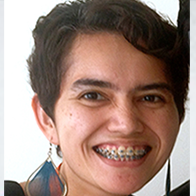A couple of months back, the birth of this column saw me venturing out from my tiny laboratory space into the streets of the real KL, in order to put a human value to my laboratory samples. The issue of urban poverty, and alongside it, homelessness, is multi-faceted.
A recent editorial note in The Lancet (Vol. 384, Number 9953, date of online publication 25thp1477-1548) cited the cause of homelessness as a complex interaction between individual and structural matters (poverty, health, substancedependence, violence and unemployment).
The “homeless” state can be long-term or a transitional period related to circumstances, and at least in Malaysia – a strong familial, and to some extend, social support is crucial in ensuring that an individual who needs help because of financial, mental, marital, or health issues can be prevented from becoming homeless.
While I choose to look at the issue of the homeless and the urban poor from the public health perspective, where it is known that infectious diseases, including tuberculosis, HIV, and Hepatitis C, alongside drug dependency, tobacco use, depression and to some extent sexually transmitted diseases, are more prevalent in the homeless and the poor because of the lack of healthcare access, any research I do cannot discount the other social issues surrounding it.
Personally, I also believe that research should not just be about high-impact publications, but also for science and data to supplement information to be used to better policies in relation to the population at large.
Any good science should increase knowledge in the field and translate into improved living conditions for the population in general.
Thus, it comes as a disappointment to me when the recently concluded seminar on the topic did not engage the most authorised stakeholders.
There were many valid points on the complexity of addressing the social issues surrounding homelessness highlighted by the seminar, including the rising cost of living in urban areas, the influx of migration because of promised wealth in the big cities, cultural challenges between rural and urban living, a disparity between availability and affordability of housing, lack of job security, the possibility of a financial crisis which leads to retrenchment, domestic issues causing individuals to leave their families or lack familial support, mental health issues, to name a few.
However, it seems that the authorities either do not want to take responsibility in addressing the root causes of homelessness or eager to just place homeless individuals under a roof, because, well, any roof is better than “Starlight Hotel”.
No complex issues can be solved with a miracle cure – even the hopelessly naïve, optimistic me can see that!
Engagement with the NGOs who work closely with the homeless, and a concerted effort by all stakeholders, a hand-to-heart taking responsibilityon the issue itself should be a step towards finding a solution to curb the homelessness issue.
Each stakeholder should pave the way forward through meaningful engagement and ensuring proper, efficient implementation of the programmes planned.
The ministry in charge should do more outreach work, the law enforcers should be sensitised to helping such marginalised communities as opposed to be seen as “the enemy” to the homeless, social scientists and basic scientists alike should inform relevant data and policymakers should be more heavily involved.
The homeless and urban poor themselves must be willing to change for the better, too.
There is a lot of work to be done, and it will take a very long time to see the results, yet I think a step towards this direction should be taken and be taken right now – as opposed to pushing every single homeless individuals out from a 2km radius from the city centre in two days.
Lest we forget, all these work must be done with a lot of empathy and patience and mutual respect for fellow human beings whether they have a “mi casa” in Bukit Tunku or residing in Starlight Hotel. – October 29, 2014.
* This is the personal opinion of the writer or publication and does not necessarily represent the views of The Malaysian Insider.


Comments
Please refrain from nicknames or comments of a racist, sexist, personal, vulgar or derogatory nature, or you may risk being blocked from commenting in our website. We encourage commenters to use their real names as their username. As comments are moderated, they may not appear immediately or even on the same day you posted them. We also reserve the right to delete off-topic comments